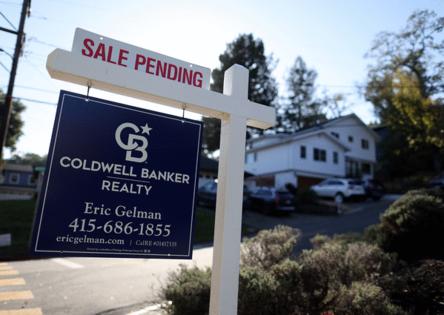Trump's 50-year mortgage loses steam as industry questions costs
Published in News & Features
Days after Donald Trump’s party lost several key election contests that centered on cost-of-living concerns, the president floated the prospect of a 50-year mortgage to help voters tackle one of their top concerns: housing affordability.
“All it means is you pay less per month,” Trump said in an interview that aired on Monday.
Yet the president’s idea is struggling to gain traction in the housing industry, as experts largely dismiss it as a short-sighted model that provides little cost relief and ends up hurting homeowners over the long term.
Paying for a home over five decades would increase the amount of interest homeowners would pay while slowing the amount of equity they build in their homes. Experts also caution that the plan could stoke demand that further raises home prices in a market constrained by a lack of supply.
“A 50-year mortgage dramatically depreciates the biggest value of homeownership — wealth building,” said David Dworkin, president and CEO of the National Housing Conference. “Over time, the loss of equity quickly overcomes any savings on payment.”
Consider a $420,000 mortgage with 20% down and a 6.3% interest rate. The monthly payment would be $236 lower for a 50-year loan than a 30-year loan, said Lawrence Yun, chief economist at the National Association of Realtors.
But “the total cost of the home would rise to roughly $1.1 million, with nearly $360,000 more in interest paid over the life of the loan,” Yun said. “It would also take almost 40 years to pay off half the balance, meaning most borrowers would not begin building meaningful equity until the final decade.”
In a world where people are buying their first home at an older age — the median age of a first-time buyer has risen to a record of 40 years old, NAR reported last week — that’s a problem.
The idea would also take time to implement. For starters, the Consumer Financial Protection Bureau would have to amend the Qualified Mortgage rule to allow loans with terms longer than 30 years to be eligible for that designation — a process that would take at least a year to carry out, given the notice-and-comment requirements involved with rulemaking.
Fannie Mae and Freddie Mac, the two government-controlled companies behind more than half the residential mortgage market, could theoretically create a market for 50-year loans in the interim by buying them from lenders. But lender appetite would depend to some extent on the legal liability protection afforded by the Qualified Mortgage rule.
“Lender willingness to offer a 50-year mortgage product is likely to be muted given that Fannie Mae and Freddie Mac are currently prevented from buying non-QM mortgages,” said Mortgage Bankers Association spokesperson Falen Pitts.
Fannie and Freddie buy mortgages from lenders and package them into securities to sell to investors, freeing up the lenders to make more loans.
And while the smaller monthly payments of a 50-year product might be welcome, the model might lead to other homebuyer frustrations down the road.
‘Trading up’
“The slow equity build would make trading up or down very difficult,” said Yun, referring to the ability of homeowners to cash in their equity by selling their homes to buy either more expensive or cheaper housing.
The leaves it unclear whether homeowners will ever face the choice of signing up for a 50-year mortgage. On Saturday, Federal Housing Finance Agency Director Bill Pulte called the proposal “a complete game changer.” A day later he seemed to backtrack, casting the idea as “simply a potential weapon in a WIDE arsenal of solutions that we are developing.”
The Trump administration also signaled that any move toward implementing a 50-year-mortgage is a ways off.
“There’s a lot of legal analysis, but if it requires legislation, then it wouldn’t be imminent,” White House Economic Director Kevin Hassett said.
©2025 Bloomberg L.P. Visit bloomberg.com. Distributed by Tribune Content Agency, LLC.







Comments